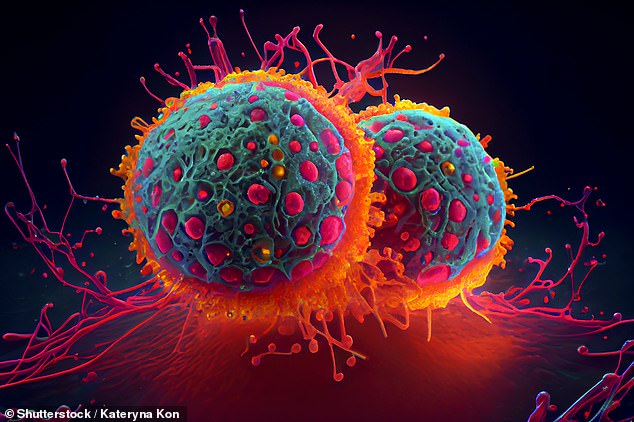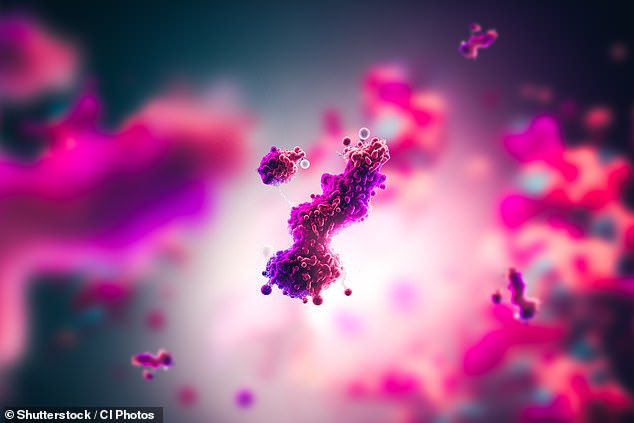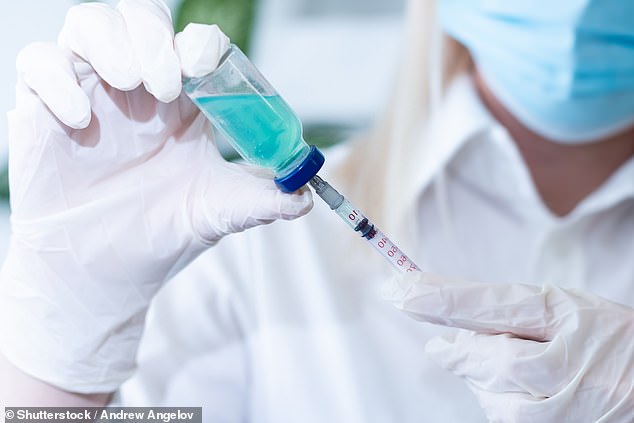Giving immunotherapy to cancer patients early in the morning instead of in the afternoon could improve survival rates.
A study has found that people with terminal lung or skin cancer lived twice as long if they received immunotherapy drugs (which help the immune system destroy cancer cells) at the beginning of the day rather than after lunchtime.
The best results were observed in those treated around 7:30 a.m. They lived on average another two and a half years.
The researchers who led the trial, published in the European Journal of Cancer, believe this may be because the immune system is more active earlier in the day.
Previous studies found that there are higher levels of immune cells circulating in the blood early in the morning.
Giving immunotherapy to cancer patients early in the morning instead of in the afternoon could improve survival rates, according to a new study (File Image)

Immunotherapy drugs stop proteins from binding to T cells, which reactivates the immune system and allows it to search for and destroy cancerous growths. Pictured: A graph showing cancer cells.
In addition to fighting viruses and bacteria, they can attack cancer cells.
This is believed to be because the circadian rhythm (our biological clock) prepares the immune system to face any daytime threat from infectious agents, such as those found in food or those transmitted by interacting with the people around us. surround.
Immunotherapy drugs such as ipilimumab, pembrolizumab and nivolumab have transformed cancer care in the UK over the last decade.
Since 2011, when the first immunotherapy drugs were authorized in the UK for the treatment of malignant melanoma (the most dangerous form of skin cancer), the average survival time has increased from six months to five years or more.
Most of these drugs, which can cost up to £100,000 per patient per year, work by binding to a protein called PD-L1, which is produced in large quantities by cancer cells.
The protein deactivates T cells, protective cells released by the immune system, leaving them unable to attack cancer.
Immunotherapy drugs stop proteins from binding to T cells, which reactivates the immune system and allows it to search for and destroy cancerous growths.
The theory is that giving immunotherapy at the beginning of the day would enhance this response, since there are more T cells circulating at that time.
This follows previous research that showed that people who received the flu vaccine early in the day produced much higher levels of antibodies than those who received the vaccine later.
Again, the idea is that the immune system is most active at that time, so it responds much more vigorously to vaccines.
The researchers, from several organizations in France, including the PSL Research University in Paris, analyzed data from 361 patients with lung or skin cancer that had spread and who were treated with immunotherapy drugs between 2015 and 2021.
Their survival rates were compared to the usual time each patient received treatment; most had about the same interval every week or two weeks.

The theory is that giving immunotherapy at the beginning of the day boosts a person’s immune response, since there are more T cells at that time. Image: molecular model of an antibody.
The results showed that those treated before noon survived an average of 30 months; after that, the average survival was 15.9 months.
Previous studies that also involved the timing of cancer treatments came to similar conclusions.
Two larger trials are now underway in China and the United States to see if more lives could be saved simply by giving medicine in the morning. The results are expected in the coming years.
Dr Pasquale Innominato, a cancer specialist at Ysbyty Gwynedd Hospital in Bangor, Wales, who is also researching the effect of giving drugs earlier, said the findings have the potential to revolutionize NHS patient care.
“We need to see the results of larger trials, but all the evidence so far shows that, whatever type of immunotherapy drug is used and whatever type of cancer it is, there are benefits to giving treatment earlier in the day”.

